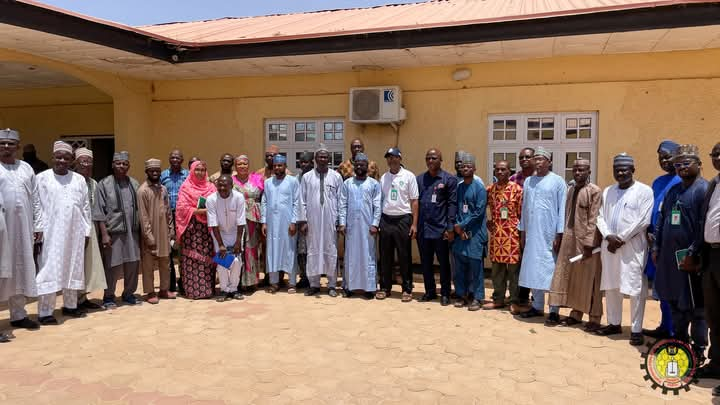NARICT Cemented Collaborative Opportunities with NILEST
On 17th March 2025, Dr. Kabiru Mu’azu, the Director General of the National Research Institute for Chemical
Technology (NARICT), led a delegation to the Nigerian Institute of Leather Science and Technology (NILEST) in Samaru,
Zaria. The primary objective of this visit was to pay a courtesy call and further cement potential areas of
collaboration between the two esteemed institutions, with a specific focus on advancing chemical technology
and leather research.
The visit identified opportunities for joint research, capacity building, and technology transfer between NARICT
and NILEST. Through the integration of their specialised knowledge and skills, these institutions aspire
to drive innovation and progress within Nigeria’s chemical and leather industries.
Key areas of collaboration between NARICT and NILEST include:
- Chemical Technology: Pioneering new chemical products and processes by harnessing Nigeria’s abundant natural resources.
- Leather Research: Elevating the quality and competitiveness of Nigeria’s leather industry through strategic research and development.
- Capacity Building: Providing comprehensive training and capacity-building programmes for researchers, scientists, and technicians within both organisations.
The DG/CEO of NILEST, Dr. Awwal Mustapha Imam, personally took the NARICT DG/CEO and his entourage on a tour of their facilities.
The entire leather processing journey was described in detail, right down to the production of shoes, belts and other products,
as well as quality control measures. Dr. Mu’azu indicated that it would be excellent for both institutes to work on treatment
techniques for the highly toxic chrome-filled waste generated during the tanning process.
“The collaboration between NARICT and NILEST marks a strategic alignment aimed at leveraging their collective strengths
to address critical challenges and maximize opportunities within their respective fields. By combining resources and expertise,
both institutions are poised to drive sustainable growth and enhance the competitiveness of Nigeria’s chemical and leather industries.”
At the conclusion of the meeting, a call was made to develop a formal Memorandum of Understanding (MoU). This agreement would serve
as a framework for a robust and enduring partnership, fostering research capabilities, knowledge exchange, and innovation that will
benefit Nigeria’s scientific community and industrial sector.
As these institutions embark on this collaborative journey, they reaffirm their commitment to scientific integrity, ethical research, and excellence.
Their partnership sets a precedent for effective cross-institutional cooperation, promising tangible benefits for Nigeria’s chemical technology and leather industries,
and beyond.


